Health experts advise persons with dementia to include a variety of superfoods for dementia in their diet daily. Live Science describes foods for dementia as mostly plant-based, but also some dairy and fish that are thought to be nutritionally dense, hence good for a person’s health.
Scientists are continually examining the foods that can enhance cognition and the ones that hinder it. Research shows that what a person eats has a significant impact on brain health.
Hippocrates once emphasised that food should be medicine and medicine should be food. Consuming the right combination of foods can build new brain cells, enhance memory, and perhaps lessen dementia occurrences.
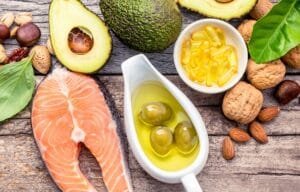
Chief policy and research officer at the Alzheimer’s Society, Dr. Doug Brown, said that eating a balanced and healthy diet can reduce the risk of stroke, cancer, and heart disease; thus, it is likely that healthy eating is a great way of looking after the brain.
He also stated that they are still waiting for proof from huge scientific trials to show whether changing diet can reduce dementia risk and by how much.
Check out some of the superfoods that are recommended for persons living with dementia below.
Contents
Best Super Foods for Dementia
Cruciferous Vegetables and Leafy Greens
Vegetables are not only tasty, but they also have essential vitamins, like B9 and folate, which have proven to reduce depression and boost cognition.
Green vegetables have more vitamins with options like collard greens, kale, spinach, cauliflower, and broccoli being some of the best choices.
Vegetables are also known to be high in carotenoids that can reduce homocysteine levels. This is an amino acid that is linked to dementia, brain atrophy, and cognitive decline.

Berries
Berries like cherries, blueberries, raspberries, and blackberries are a go-to option when looking for fruits that are loaded with antioxidants and help reduce inflammation. Antioxidants are known to help persons with dementia by enhancing cognitive function.
A study released in the Journal of Alzheimer’s disease explains that the level of antioxidants various berries have, may help with reducing plaque build-up in the brain. This plaque is one of the major causes of dementia.
Berries also contain a flavonoid known as anthocyanin that may help slow down the progression of brain damage that is triggered by free radicals.
Investigators also claim that blueberries which are also referred to as “brain food” may activate the region of the brain that controls memory and learning, however, more studies on these are required to substantiate the claims.
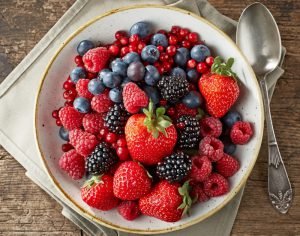
Spices and Herbs
Spices are also included in the list of superfoods for dementia.
These are great because they can be added to meals to enhance flavour without adding any calories or bulk. They also offer a wide range of benefits depending on the spices a person is taking.
Cumin, turmeric, cinnamon, and sage are examples of some spices that help to boost memory, reduce brain inflammation, improve working memory, and reduce brain plaque.
Herbs like rosemary are also known to enhance memory and offer people with dementia protection from cognitive decline.
Other herbs and spices that are proven to be good for brain health include ginger, nutmeg, pepper, and saffron.
Seeds and Nuts
Nuts and seeds are packed with healthy vitamins, protein, fats, and magnesium which are proven to reduce brain inflammation, promote good cognition, and beat off mental decline.
A study reported that ladies over 70 years who eat at least 5 servings of nuts weekly have better brain health than the ones who do not eat nuts.
Seeds like pumpkin seeds, flax seeds, and sunflower seeds are an excellent source of omega-3s, vitamin E, choline, and zinc which can also promote brain health.
Another study published in the Journal of Alzheimer’s disease (AD) studies mice with AD. Some of the rodents were fed a standard diet while others were supplemented with walnuts.
During the period of the study, the researchers uncovered that the mice that were on a standard diet suffered impaired learning ability and memory deficits.
The rodents that were fed on walnuts recorded improvements in learning ability and memory.

Avocado
The avocado has also earned its place among the superfoods for dementia.
It is a nutrient-dense fruit that is rich in potassium, folate, fibre, magnesium, and vitamin E. Avocado as a monosaturated fat can reduce the risk of cognitive decline because it can help increase blood flow and lower blood pressure.
The fruit is also said to prevent the formation of brain tangles thanks to the fact that it is rich in folate.
Avocados also pack flavonoids and polyphenols that are anti-inflammatories and help fight dementia.

Omega-3
These are healthy fats that may help to prevent and fight dementia. They are commonly found in fatty fish like salmon, mackerel, and tuna.
The fish types are also high in DHA and EPA which are fatty acids that are important for optimal brain health. People can also get omega-3s in flax seeds and olive oil among other sources.

Pulses
Pulses like beans and legumes (which can include chickpeas and lentils) are a nutritional powerhouse offering folate, iron, potassium, magnesium.
They are also high in fibre & protein, and low in fat. It is one of the reasons they belong to the category of superfoods for dementia. They also pack a B vitamin known as choline that boosts a neurotransmitter called acetylcholine which is vital for brain function.
The plant proteins have been linked with enhanced preservation of thinking and memory. A study indicated that a lower intake of pulses can lead to an increase in cognitive decline.
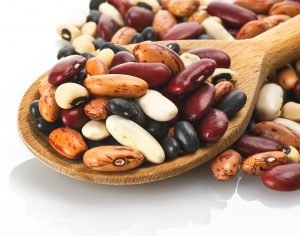
Eggs
Eggs are among some of the most nutritious foods found in the home, providing people with multiple minerals and vitamins.
Eggs are a great source of choline which helps to repair damaged brain tissue.
A study by the University of Eastern Finland discovered that choline is not only useful in developing memory and the brain, but it might also help to protect people against Alzheimer’s disease and cognitive decline.

Closing Remarks
Carefully choosing what to eat can have a significant impact on a person’s health. It is one of the reasons the above super foods for dementia come highly recommended.
These brain-boosting foods can help slow down progression of the illness and improve the quality of life for persons with the progressive illness.
Easy Tempting Meals for Dementia Patients
All-Natural Brain Health Supplement Reviewed
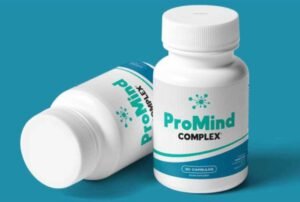 It is not always easy to source superfood herbs, nor is it, for some people, practical to grow your own herbs. Taking a well-formulated supplement may be the best solution.
It is not always easy to source superfood herbs, nor is it, for some people, practical to grow your own herbs. Taking a well-formulated supplement may be the best solution.
ReaDemetia investigated several products that we felt had the ingredients and integrity to be worthy for our audience to consider. One product, ProMind Complex, ticked many of the boxes.
Read our comprehensive review of ProMind Complex HERE.
Similar articles:
9 Best Foods to Reverse Dementia in 2021
10 Best Herbs for Dementia and Brain Health 2021
Reference:




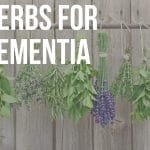
![Dementia And Incontinence [Causes & Treatment] dementia and incontinence](https://readementia.com/wp-content/uploads/2020/05/dementia-and-incontinence.jpg)

